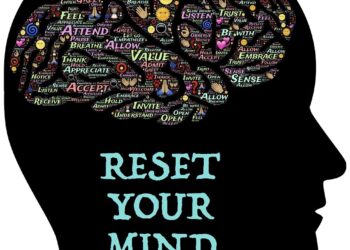Emotional availability is a crucial aspect of any healthy relationship. It refers to an individual’s ability to express and connect with their emotions, as well as their willingness to be present and supportive for their partner. When someone is emotionally available, they are open to forming deep connections, sharing their feelings, and providing comfort and understanding. However, not everyone possesses this trait, and being in a relationship with an emotionally unavailable partner can be challenging and distressing.
Signs of being Emotionally Unavailable
Emotional unavailability refers to the difficulty or unwillingness to engage in emotional intimacy and express one’s emotions. It can manifest in various ways, including a distant or cold demeanor, difficulty discussing feelings, and a lack of emotional closeness in relationships.
Some common signs include:
Emotional Distance
One of the key signs of emotional unavailability is a sense of emotional distance in the relationship. You may feel like your partner is physically present but emotionally distant, as if there is a barrier preventing true emotional connection.
Feeling Alone in the Relationship
Emotionally unavailable partners often struggle to express their feelings or understand yours. This can leave you feeling alone in the relationship, as if you are the sole emotional provider. The lack of emotional support and understanding can be emotionally draining and challenging to navigate.
Lack of Support
Emotionally unavailable individuals may struggle to provide the support and validation needed in a healthy relationship. They may dismiss or downplay your emotions, leaving you feeling unheard and unsupported.
Communication Difficulties
Poor communication skills are often a hallmark of emotional unavailability. Your partner may struggle to effectively express their thoughts and emotions, leading to misunderstandings and unresolved conflicts.
Difficulty Displaying Emotions
Emotionally unavailable individuals may find it challenging to display their emotions openly. They may be hesitant to express love, affection, or vulnerability, making it difficult to establish a deep emotional connection.
Lack of Empathy
Empathy is a crucial aspect of emotional availability. Emotionally unavailable individuals may struggle to empathize with your feelings or understand your perspective. This lack of empathy can make it challenging to resolve conflicts and build trust in the relationship.
Difficulty Connecting with Others
Emotionally unavailable individuals may struggle to form meaningful connections with others, not just in romantic relationships but also in friendships and family dynamics. They may have difficulty understanding and relating to the emotions and needs of others, resulting in strained relationships.
Fear of Intimacy
Fear of intimacy is often at the root of emotional unavailability. Emotionally unavailable individuals may have experienced past traumas or negative relationship experiences that have caused them to fear emotional closeness. This fear can manifest as a reluctance to commit or a desire to maintain emotional distance.
Lack of Effort in the Relationship
Partners who are emotionally unavailable may show a lack of effort in the relationship. They may not actively contribute to its growth or prioritize its well-being. This can lead to feelings of imbalance and dissatisfaction.
Lack of Enthusiasm
Emotionally unavailable individuals may lack enthusiasm and excitement in the relationship. They may not show genuine interest or invest energy into fostering a fulfilling connection. This can leave you feeling unappreciated and undervalued.
It’s important to note that emotional unavailability can vary from person to person. Some individuals may be emotionally available in certain areas of their lives while being closed off in others. Also, emotional unavailability is not always intentional, as past experiences or unresolved traumas can contribute to this behavior.
Causes of Emotional Unavailability
Emotional unavailability can stem from various factors, including cultural and social influences, childhood experiences, traumatic events, and past relationships.
- Cultural and social factors: Some individuals are taught that expressing emotions is a sign of weakness, leading them to develop strategies of emotional suppression or avoidance.
- Childhood experiences: People who experienced emotional neglect or felt that their needs were not met during childhood may adapt by suppressing their emotions and minimizing others’ access to their emotional world.
- Traumatic events: Situational causes, such as a breakup, divorce, or a traumatic experience, can lead individuals to shut down emotionally as a way to cope with daily functioning.
- Past relationships: Previous negative experiences in relationships can lead individuals to become emotionally unavailable in fear of repeating past pain and suffering.
The Impact of Emotional Unavailability
Emotional unavailability can have profound effects on both the individual and their relationships. It’s important to recognize and address these impacts to foster personal and relational well-being.
Impact on the Individual
People who are emotionally unavailable often struggle with their own emotional well-being. They may have difficulty expressing their emotions and may even deny or suppress them. This emotional detachment can hinder personal growth, self-awareness, and overall emotional health. It may also lead to difficulties in connecting with others and experiencing genuine intimacy.
Individuals who are emotionally unavailable may find it challenging to empathize with others, as they are accustomed to turning off their emotions. This can hinder their ability to understand and relate to the emotions and needs of their loved ones.
Impact on Relationships
Emotional unavailability can significantly affect relationships, both romantic and platonic. In romantic relationships, emotionally unavailable partners may struggle to form deep emotional connections, leading to feelings of frustration and loneliness for their partners. They may also avoid commitment and intimacy, leading to a lack of trust and stability in the relationship.
Friendships with emotionally unavailable individuals may also be affected. These individuals may struggle to provide emotional support and may become uncomfortable when others confide in them or become emotionally attached. This can lead to strained friendships and a lack of emotional closeness.
Recognizing and addressing the impact of emotional unavailability is crucial for fostering healthier and more fulfilling relationships.
Dealing with Emotional Unavailability
Dealing with emotional unavailability requires patience, understanding, and effective communication. While change may not happen overnight, there are steps you can take to address the challenges associated with emotional unavailability.
Open Communication and Empathy
Openly communicate your feelings and concerns with your partner, approaching the conversation with empathy and understanding. Express how their emotional unavailability affects you and your relationship, while also acknowledging their positive qualities. Encourage them to share their perspective and emotions, fostering a safe space for vulnerability.
Recognizing Personal Boundaries
Understand and respect your own boundaries when dealing with an emotionally unavailable partner. Set clear expectations for what you need in the relationship and be assertive in communicating those needs. It’s important to prioritize your emotional well-being and establish healthy boundaries that promote mutual growth and support.
Seeking Professional Help
Consider seeking the guidance of a licensed therapist or relationship counselor to navigate the challenges of emotional unavailability. A professional can provide insights, tools, and techniques to facilitate open communication, emotional healing, and personal growth for both individuals in the relationship.
Self-Reflection and Personal Growth
Take time for self-reflection and personal growth. Explore your own emotional needs, patterns, and past experiences that may contribute to the dynamic with an emotionally unavailable partner. Focus on developing self-awareness, building emotional resilience, and fostering healthy coping mechanisms. Engage in activities that promote self-care and personal growth, such as therapy, mindfulness practices, and self-reflection exercises.
Conclusion
Emotional unavailability can present significant challenges in relationships, but it is possible to overcome them with patience, open communication, and personal growth. By recognizing the signs of emotional unavailability, understanding its causes, and taking proactive steps to address the issue, individuals can foster healthier and more fulfilling connections. Remember, both partners in a relationship must be willing to invest emotionally and be open to growth for a relationship to thrive.
Related Post
36 Questions That Lead to Love: The Psychology, Effectiveness, and Tips
Uncovering Types of Stress and Effective Management Strategies
















